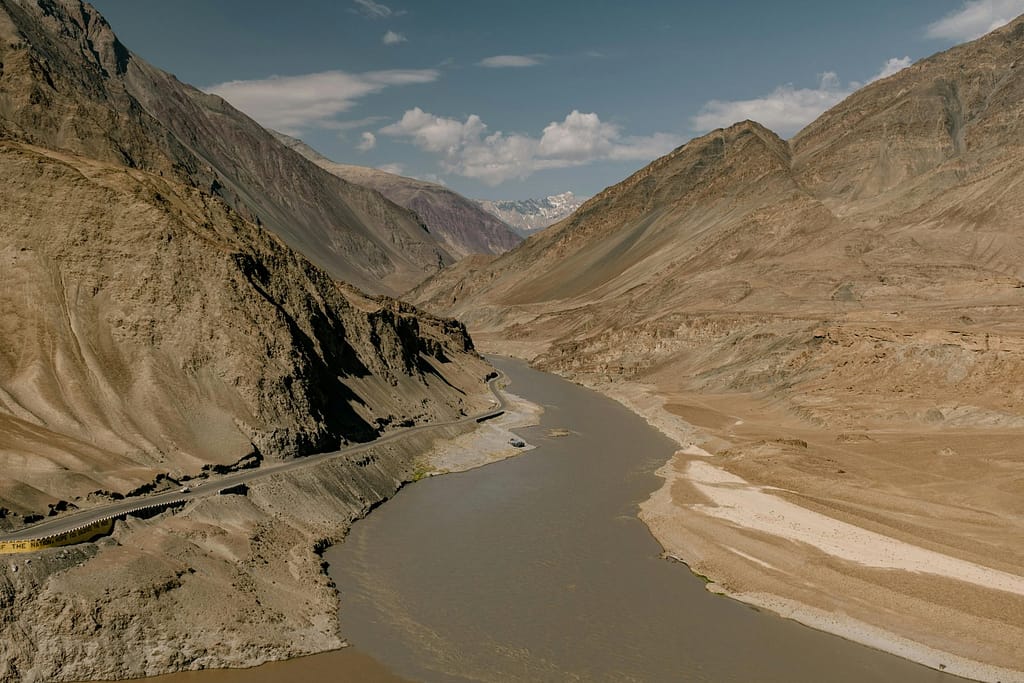
By Bharat Global Time — National Security Desk
June 11, 2025 | New Delhi | Islamabad | Geneva
Pakistan Runs to Washington Over Water Dispute
Amid rising diplomatic tension, Pakistan has formally approached the United States, seeking intervention over India’s recent decision to suspend parts of the Indus Waters Treaty (IWT) and go ahead with dam construction on the Chenab River. Islamabad claims that India’s actions could “strangle” its agricultural heartlands and destabilize water flow to millions downstream.
This comes just weeks after Pakistan was internationally slammed for supporting cross-border militancy, prompting India to pause water cooperation until Islamabad demonstrates genuine commitment to peace.
India Clears Eight Hydropower Projects on Chenab
In a landmark internal decision, the Indian government has approved eight major hydropower projects on the Chenab River in Jammu and Kashmir. These include long-planned and newly revised projects like Ratle, Bursar, Kiru, Kwar, and expansions on Baglihar and Salal dams.
According to Indian officials:
“Every drop of water flowing from our land is a national resource. Why should Pakistan benefit from our rivers while exporting terrorism to our soil?”
The dams, India asserts, are within the technical limits allowed by the treaty—particularly for non-consumptive use like power generation—and do not breach international law.
UN Urges Dialogue, But India Stands Firm
Reacting to growing pressure, the United Nations has urged India to reconsider its treaty suspension, citing potential humanitarian fallout in Pakistan. UN envoys warned of downstream shortages, particularly in Punjab and Sindh, if diplomacy breaks down completely.
India responded strongly:
“This is not about water. It’s about accountability. There can be no cooperation with a nation that glorifies terror martyrs and backs infiltration.”
The Treaty Under Scrutiny: Still Relevant?
Signed in 1960 with World Bank mediation, the Indus Waters Treaty gave control of the eastern rivers (Ravi, Beas, Sutlej) to India, while the western rivers (Indus, Chenab, Jhelum) were reserved for Pakistan—with India allowed “limited use” like hydroelectricity and irrigation.
But Indian experts now argue that:
- The treaty is outdated, especially with modern security threats and rising population needs.
- Climate change, reduced glacial inflow, and recurring terror attacks demand a fresh water-sharing framework.
- India’s patience has worn thin after decades of “water for terror” imbalance.
India’s Strategic Vision: Water Security is National Security
With its growing economy and rising energy needs, India sees river resources—especially Himalayan-fed rivers—as a critical national asset. By investing in hydropower along Chenab and Jhelum, India is not only asserting its treaty rights but also:
- Reducing dependence on coal and oil through green energy.
- Enhancing strategic infrastructure in border areas.
- Ensuring controlled water flow as leverage during crises.
What’s Next? Global Attention Turns to the Indus Basin
| Region | Concern | India’s Stand |
|---|---|---|
| Pakistan | Water scarcity, food security fears | Fix terror, return to dialogue |
| UN | Regional instability, human impact | Treaty must evolve with the times |
| India | Terror attacks, misuse of goodwill | No treaty talks without peace |
Conclusion: India Reclaims Its Rivers, Asks Pakistan to Reclaim Its Conscience
New Delhi’s approval of eight new Chenab projects signals a powerful shift—not just in water policy, but in geopolitical posture. For decades, India honoured the Indus Waters Treaty, even during wars. But today, terror has consequences. Islamabad must choose: water talks or proxy war—not both.





